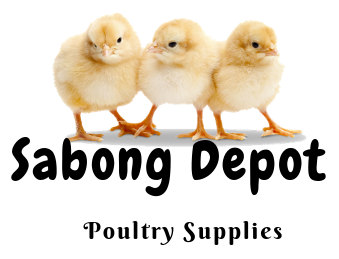Gamefowl breeders may be concerned about the possibility of avian influenza A virus infections in their flocks and the potential for human transmission. However, based on the available information, human infections with avian influenza A viruses are rare and isolated cases that typically occur after unprotected exposure to infected poultry or virus-contaminated environments.
Despite concerns regarding avian influenza A viruses, human infections with these viruses remain uncommon. However, sporadic cases have occurred in many countries, typically after unprotected exposures to infected poultry or virus-contaminated environments. These infections can result in mild-to-severe illness with a wide range of symptoms and complications. In addition, a small number of human infections with avian influenza A viruses have been attributed to exposure to infected wild birds. Although the source of infection is not always clear, human infections have occurred with different subtypes of low pathogenic and highly pathogenic avian influenza A viruses.
Low Pathogenic Avian Influenza A Virus Infections
Subtypes of low pathogenic avian influenza (LPAI) A viruses that have been virologically confirmed to have infected people include A(H6), A(H7), A(H9), and A(H10) viruses. The severity of illness associated with LPAI infections in humans is generally mild, and these viruses have not been associated with widespread outbreaks or sustained human-to-human transmission.
Highly Pathogenic Avian Influenza A Virus Infections
Subtypes of highly pathogenic avian influenza (HPAI) A viruses that have been virologically confirmed to have infected people include A(H5) and A(H7) viruses. These infections can result in severe respiratory illness, and have been associated with outbreaks in poultry populations, which can lead to human exposure. Despite concerns regarding HPAI, human infections with these viruses remain rare.
VitminPRO: Immune-boosting gamefowl multivitamins supplement
Human-to-Human Transmission of Avian Influenza A Viruses
Human-to-human transmission of avian influenza A viruses is rare, but possible. Limited, non-sustained, human-to-human transmission has been reported in a small number of people without poultry exposures who had close unprotected exposure to a symptomatic index case of HPAI A(H5N1) virus infection, HPAI A(H7N7) virus infection, or LPAI A(H7N9) virus infection. Most reported cases of probable limited, non-sustained, human-to-human transmission have occurred among blood-related family members after unprotected, prolonged close household exposure to a symptomatic family member. However, a small number of reported cases occurred after unprotected, prolonged close exposure to a very sick family member in a hospital. A few cases of probable limited, non-sustained, human-to-human transmission in a hospital have been reported among unrelated patients after unprotected exposures.
Conclusion
Human infections with avian influenza A viruses remain uncommon, but sporadic cases have occurred in many countries. While the risk of human-to-human transmission is low, it is important for health authorities to remain vigilant and prepared for the possibility of sustained human-to-human transmission. Effective measures, such as the use of respiratory or eye protection, should be taken to prevent exposure to infected poultry or virus-contaminated environments. Continued surveillance of avian influenza A viruses in both human and animal populations is critical to understanding the potential risks and preventing future outbreaks.
While the risk of human-to-human transmission of avian influenza A viruses is low, it is important for farmers to practice biosecurity measures to prevent avian flu in their flocks. This includes measures such as limiting exposure to outside birds, cleaning and disinfecting equipment and facilities, and practicing good hygiene.
In addition to biosecurity measures, it is important for farmers and their gamefowls to maintain a healthy immune system. Adequate sleep, exposure to sunlight, regular exercise, and immune-boosting supplements for gamefowls can help to strengthen the body's defenses against infections.
Overall, gamefowl breeders should not be overly concerned about avian influenza A virus infections, but should take appropriate precautions to prevent the spread of disease and maintain good health for themselves and their flocks.







